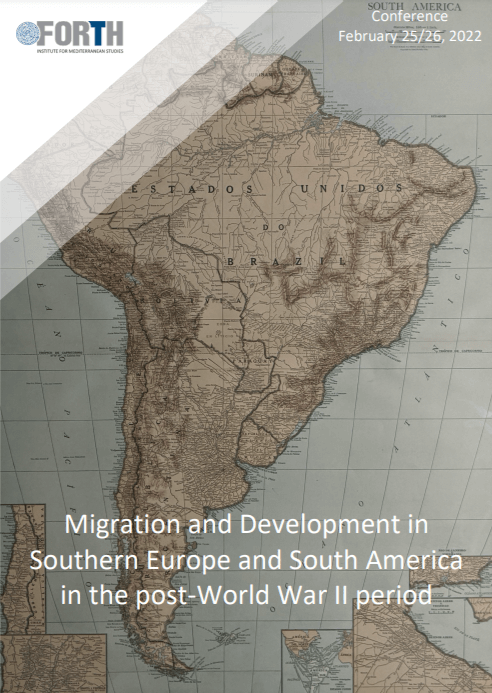During the 1950s the governments of countries in the periphery of the so-called “Free World”, either democratic or authoritarian, set as a priority the “modernization” of their societies since underdevelopment was considered as a source of social and political instability. In this context migration policies that promoted either emigration or immigration became important part of the development strategies in sending and receiving countries respectively. The huge and underpopulated South American developing countries such as Brazil and Argentina looked at skilled European immigrants as a solution to their deficiencies in qualified human resources whereas overpopulated Southern European countries tried to get rid of their population “surplus” which was considered as a main factor for high unemployment, poverty and underdevelopment.
The conference aims at problematizing the connection between migration policies and strategies of development in the periphery of the “Western World” in the early post-WWII period.
Conference organization: Maria Damilakou and Yannis G.S. Papadopoulos
Funded by the General Secretariat for Research and Innovation (GSRI) and the Hellenic Foundation for Research and Innovation (HFRI)
Hosted by the Institute of Mediterranean Studies (IMS-FORTH)
